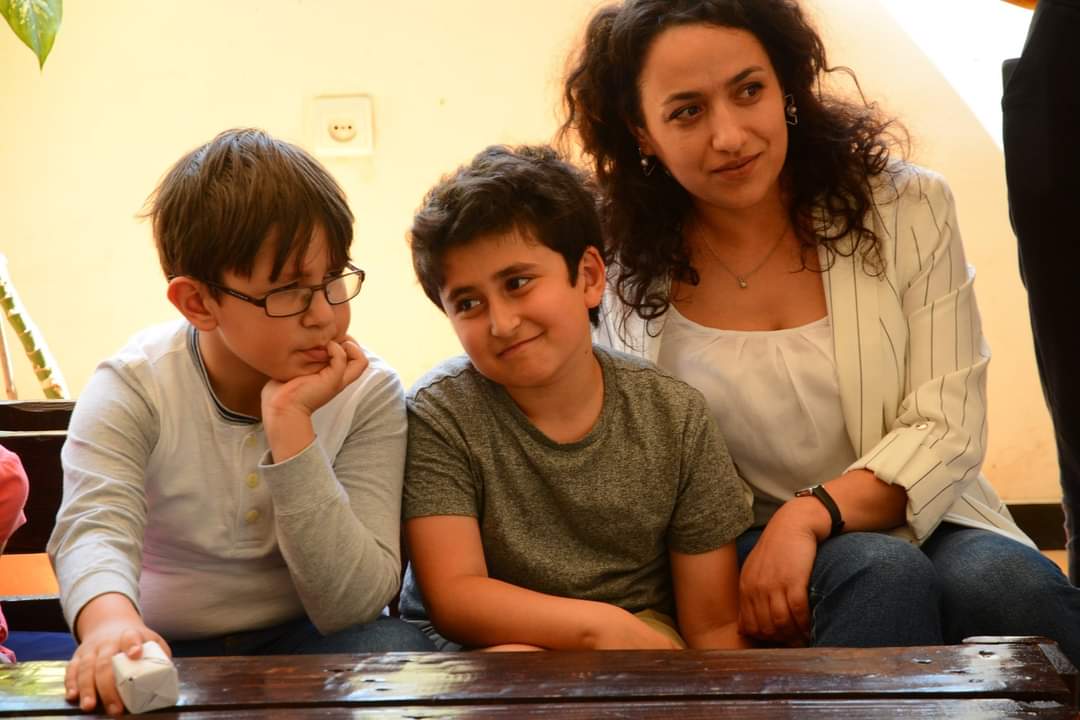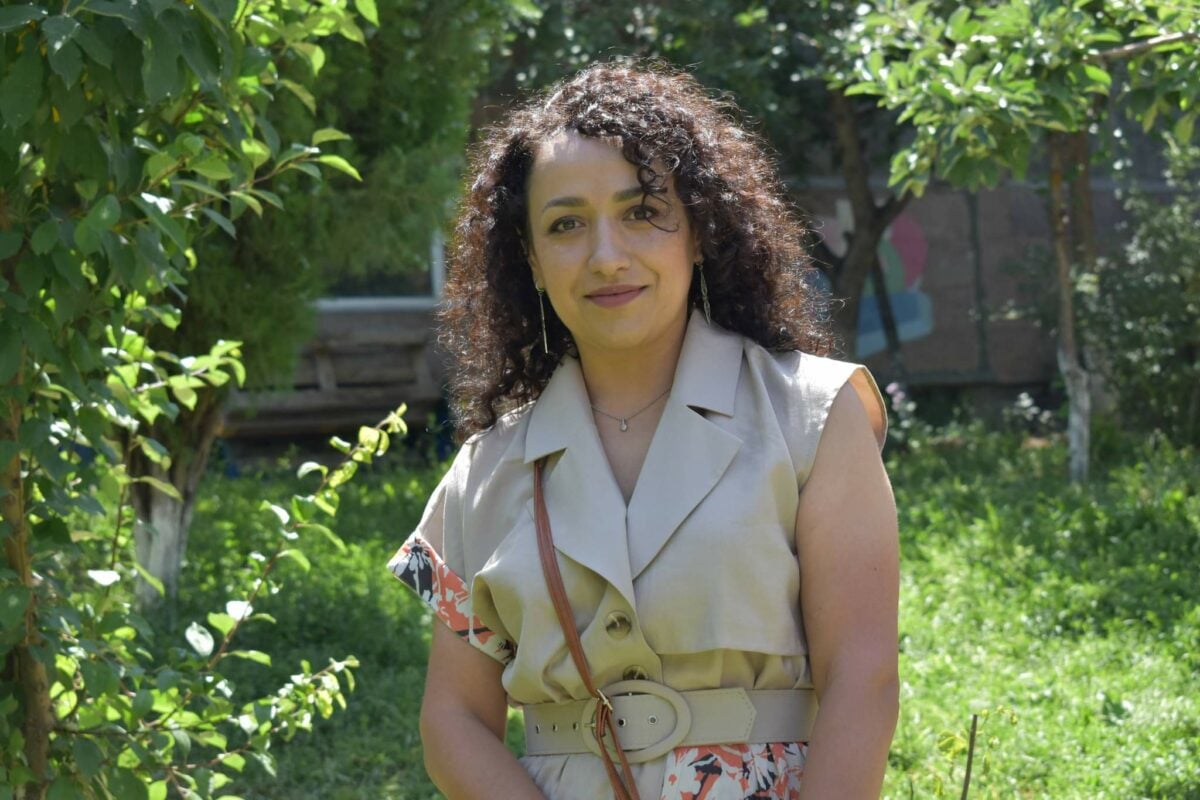Schools cannot ignore the reality of the coronavirus, moreover, it is a topic of compulsory education, discussion, which is brought to the fore from time to time. Not only awareness but also the observance of anti-epidemic rules is important both in life and at school.
Mary Grigoryan, a teacher at the Eastern School of the Mkhitar Sebastatsi Educational Complex, says that the needs of children of different age groups should be taken into account when developing a strategy for spreading information about the infection.
According to her, the representatives of state instances should come to school not only to check and control but also to educate children, talk to them, tell different stories on this topic.
According to her, children should not be underestimated, they are ready for all kinds of conversations and can play a serious role in prevention.
Do children have enough knowledge about the coronavirus today? Is it a mandatory part of the lesson process or do the teachers present the topic at their own discretion?
If you live in this day and age, regardless of your desire, the media becomes a part and companion of your life․ The educational process in the “Mkhitar Sebastatsi” educational complex is inseparable from the media.
Recently, the “Sunshine” festival has begun, which has a very good package of films also related to viruses, which are watched and discussed by students of different ages as educational films.
Discussions and conversations are a part of our daily work: We work with families and at school. The information comes from families, and then from the school to families. The educational complex is a school of life. We have included in our programs work aimed at organizing daily hygiene.
We attach importance to being outdoors, ventilation of study areas regardless of the time of year, personal hygiene (frequent washing, hand disinfection, etc.).
What should the educational institution be doing on this issue?
The task of the educational institution in this case is the right direction and organization. It is important that the educational institution is not a controlling institution, but by living with the learner, shows them how to live with the virus, and how to protect themselves.
The students in the educational complex receive information as a result of daily activities, we also involve professional parents, who transfer relevant professional knowledge to the students.
We never stop discussing this topic, moreover, in different formats (drawing, recording, making videos about the spread of infection, prevention).

What are the nuances of talking to children about an important infection?
An important educational principle here is not to harm. We have compiled and developed a guide, which presents steps on how to live with the virus called COVID-19. When giving information to students about the infection, when talking about the virus, it is important not to convey a feeling of fear.
If the child is afraid of discussions on this topic, serious problems will arise. It is important to be honest with them, to talk about how the infection spreads, affects people’s health, and how the organism fights.
The conversation should take place in an optimistic atmosphere, and the child should get the answers to all the questions that concern them on this topic. And in order to motivate them, it is important to remind them of their role, responsibilities, and the need to be an example by their behavior.
There is no form of communication specifically designed for children on the topic of coronavirus, how should it be constructed?
As a form of communication, the transfer of necessary knowledge and skills is important. Which will not be an event, but will be part of everyday activities.
One of our parents was invited to talk to the children about the infection, it was a long-awaited meeting, the children were excited. We realized how important it is to invite professional parents from the educational community to talk about this topic.
It would be very good for the state structures to be involved in this issue, to come to the school not only to conduct inspections but also to communicate with the children and tell them about their experience.
Children are always open, ready to listen, to be sincere, to discuss.
People who are aware of the problem are more influential and their words are more weighty, full of examples, and why not, funny stories, which makes the information more vivid for the learners.
Does not showing patients in serious conditions or talking about death affect children?
Both birth and death are an integral part of life, and children are somehow related to that phenomenon. The principle of not harming is also important here.
Parents should also be included in this conversation. Discuss carefully, have long conversations, and if you need to, present the facts from other angles, through metaphors, personal or other stories.
Sometimes it seems to us that by keeping the child away, we protect them, do not harm them, do not hurt them. But none of us is safe from bad scenarios, so it would be good if the child is somewhat seasoned, ready to overcome, to respond correctly to the not-so-pleasant news and realities.
Now the new strain has become quite dangerous for children as well, there are already many cases in Armenia. What problems can be caused by stopping the educational process or organizing it remotely?
In this sense, the coronavirus seems to have become a tool with which we can also see the gaps in the field of education. We did not have a problem organizing distance education in the educational complex, as the education is continuous and it seems that we had moved from one platform, the physical environment, to another platform, a media environment, a family school platform.
The educational complex has been conducting media education for many years, and the experience accumulated over the years has helped make these transitions as unobstructed as possible and the educational process of the students will not suffer.
Interview by Gayane Asryan







